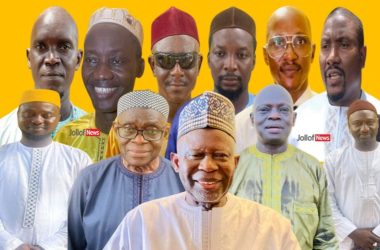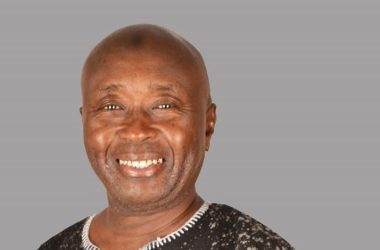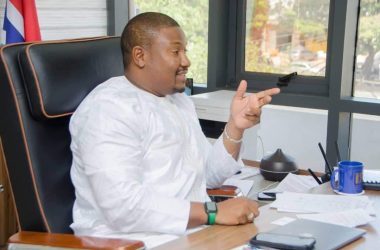
(JollofNews) – The Coalition which toppled the 22 years of entrenched dictatorship and incumbency has confirmed the fact that an Opposition which is strong, determined and united, with people who are ready for change and where the playing field is leveled and the arbiters ‘god-fearing’, even where the rules are eschewed in favour of the incumbent, can win power through the ballot box.
At the formation of our Coalition, critics and pessimists abound. That a united Opposition would defeat the incumbent at the polls was seen a pipe dream. Against the odds, armed with nothing but faith, popular support, an unbreakable spirit and determination, the united Opposition achieved the rare feat in Africa, bowling out the incumbent and an entrenched tyranny from power.The Coalition and the GDC were the official opposition. The Coalition is now the Government. The all-mighty APRC which strewn the political landscape alone for 22 years is now an Opposition party, a mere flicker of the great ember it was and with only 5 seats in the Assembly. GDC, a new entrant, is also officially one of the Opposition parties. In the quicksand of politics, roles can shift unexpectedly; the Opposition can become the Government, and the Government, the Opposition.
In a multi-party system as ours, there must be Opposition political parties, those who would champion a different development plan, different ideologies and different way of governance or governing. In a democracy as ours, there will always be dissenting opinions, people who would see things from a different prism as the political power in power or its supporters. Thus, we have to accept the Opposition, parties and individuals, as a fact of our political system and our democracy.
However, our aversion to ‘Opposition’ itself, while understandable, is somewhat intriguing. A common refrain one often hears, once very loudly in the former regime, is “our country can do without opposition because they are irrelevant to the history of the Gambia.” Others believe that the Opposition “cannot create or unite, but only divide, arrest, make dead, disintegrate”.
Yet others argue that the Opposition never wishes any good for its own country and never sees or appreciates any good that the ruling party does. A die-hard member of the Opposition would be tempted to take a stand on this issue and to argue that such a blanket devaluation of the role of the Oppositions is anachronistic and a serious misconstruction of the political term “Opposition”. This person would aver that the Opposition is an essential part of any democracy or constitution and that it, like the Press, is a vigilant watchdog of all Government action(s) or inaction(s), its acts of commission and malfeasance.
No doubt the Opposition can ‘delay’ the work of Government through its scrutiny and arguments. But isn’t this the reason why we should have a strong opposition, to serve as a check on the Government, to scrutinize its every move and action. People want not only action but very just action- action that is subjected to public approval or disapproval.
We can only be a free people if we are allowed to freely criticize, and the fountainhead of this criticism is the Opposition. Criticism can never lower the prestige of the Government of the day. Public opinion can destroy a good many bills and can also reverse a good many policies. The spearhead of this attack is the Opposition.
“To find out whether a people are politically free it is necessary only to ask if there is an Opposition and, if there is, to ask where it is” says a British political scientist. Of course there is always a widening gap between the facts of national life and what the Government assumes them to be, between what the people think they want and what the government is giving them. It is the Opposition that can put the searchlight on these discrepancies. If the Opposition makes statements what is necessary is to prove that the patriotic claims they make are founded on intellectual error or verbal muddle or ignorance of the fact.
Commenting on the role of the Opposition, Sir W. Ivor Jennings says: “If Parliament’s main function is to criticize, the Opposition is its most important part. Its members are, so to speak, critics by profession.” Each person can contribute her or his instructed judgment to the development of the nation. Dissentient voices have their value as much as those for the status quo. No opinion is either frivolous or unimportant. If we desire conformity, why are we then averse to its opposite?
Democracy is based on the assumption that inevitably there are diverse and divergent views as to the policy which a Government should follow. No patriotic and honest citizen is entitled to state categorically that one policy is better than the other; he can only think one is better. Again the true democrat gets the suspicion that he might not always be right. He is both accommodating and tolerant of other people’s “nonsense.” He reminds himself regularly of Cromwell’s injunction: “I beseech you, in the bowels of Christ, think it possible that you may be mistaken.”
We should all know that the tasks of government are too urgent and complicated to be the subject of partisan controversy or squabbling. The nature of the problems confronting the country and the methods that should be devised to meet them should be looked at from a panoramic angle. The Opposition and the ruling party can fight bitterly, but if the national interests demand they should co-operate too. This beautiful country belongs to us all, for better or for worse.
We cannot as a people afford to dissipate our valuable energy in partisanship or internal ego conflicts. Our politicians must be capable of knowing that a subtle form of power can also be exercised by those who do not hold ministerial posts. The opposition of today forms the government of tomorrow and it is the ability to make “constructive” criticisms that would sway the floating votes to its side. This important political truth must not be forgotten for it enables the minority to submit cheerfully and peacefully to the fulfillment of the policy of the majority. I want the Opposition to heed these words “If you wish to govern, you must show yourself to be governed.” It, however, does not call for the majority’s tyranny over the minority.
We are in a New Gambia and the relationship between the Government and the official Opposition, whichever party(ies), ought to be positive, amiable, mutual and constructive. I expect the Government, which was in opposition just few months ago, to be tolerant towards the Opposition since it knows what it means to be in the Opposition, since it has been there before. Thus, I dream of a Gambia in which the Government and the Opposition debate but for the education of the people. A Government which would know that its survival depends on the availability of what Disraeli calls a “formidable opposition”.
In such a Gambia the one of the roles of the Government should be, as Sir Isaac Berlin expounded, to train “the critical, or solution-finding powers of their citizens, or yet the development in them of any capacity for special insights or intuition regarded as likely to reveal the truth.”
Opposition is also about people who might hold a different view from the Government’s or the ruling coalition, on any political question or issue. In a democracy it is important to recognise and respect differences- of views, of outlooks, of political orientation. The good life for you is not, and might not be, the same good life that I crave for myself. Often the things we want do not flow together with each other. There is no plane on which these differences can be coerced into unity.
As Harold Laski explains, “loyalty is won from us, it cannot be imposed upon us. It must grow spontaneously out of our experience, and the body which seeks to retain it must be able continuously to adapt itself to an experience that is ever changing”. Each should take it as a duty to contribute his or her instructed judgment to the public good; but that is only possible in an environment where no penalty is attached to the expression of one’s contrary viewpoint.
“To allow a man to say what he thinks is to give his personality the only channel of full expression and his citizenship the only means of moral adequacy. To act otherwise is to favour the status quo, and thus either to drive the activities of men into underground and, therefore, dangerous channels, or to suppress experience not less entitled than any other to interpret publicly its meaning.” Harold J. Laski
In our New Gambia and with our newfound freedom, responsibly exercised, we should favourably look at the role of the Opposition, of political party and individual, in the new dispensation as absolutely necessary for democracy and accountability. Opposition, or to oppose, is a service to the one being opposed. One can only contribute his or her instructed judgment to the public or common good when no penalty is attached to the expression of that thought.
Governments, everywhere, can learn more from the criticisms of their opponents than from the eulogy of their supporters. 22 years of dictatorship should teach us this truth: suppression of opinions and thoughts can drive the activities of people into underground and dangerous channels or deny people experience and expertise which could be great for development and growth of democracy.
I am hopeful of a better Gambia. There are possibilities of improvement. We should be profiting from our history and experience.
By Njundu Drammeh





Nice Piece; with plenty of common sense.
A huge thanks for a very educative piece on the glories of fruitful opposition parties as a per-requisite for a well-functioning democracy.
All in all, I think the misconceptions that surround the term opposition in our daily political vocabulary are symptomatic of nations where political consciousness is pretty low. However, as I have maintained in several of my pieces so far, minor changes in our school curricula can do wonders in this respect.
By introducing subjects like “government and politics” and “economics” as compulsory subjects at senior secondary school level, this problem will certainly be hugely diminished – if not solved completely – within a decade or two. Not least because such a course of action shall demystify these subjects and raise the younger generation’s political education to higher heights. Thereby improving our new democracy’s chances of survival in the long-term. For our common good as a nation.